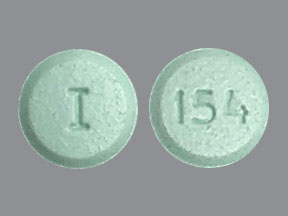
Haloperidol Coupons & Savings Card – Discount Prices from $12.52
Generic for: Haldol decanoate
My prescription
Edit
10MG, Haloperidol (60 Tablets)
Select pharmacy

CVS
$21.80
COUPON PRICE
Walgreens
$12.52
COUPON PRICE
Walmart
$24.76
COUPON PRICE
Albertsons
$26.60
COUPON PRICEHaloperidol savings card
Show this card to your pharmacist
Walgreens
$12.52
BIN
ID
PCN
GRP
011867
LH35D8D03D
HT
LABH001
Powered by
More prescriptions for tourette syndrome
More prescriptions for tourette syndrome
Price history for Haldol Decanoate (brand) & Haloperidol (generic)
60 Tablets, 10MG
Average retail price for Haldol Decanoate
Average retail price for Haloperidol
Average SaveHealth price for Haloperidol
Our price history data is based on aggregated prescription data collected from participating pharmacies in America. Our prescription data updates daily to reflect the latest price changes. If you notice a missing data point, it means there wasn't sufficient data available to generate a monetary value for that date.
We analyzed Haloperidol prices for (10MG, 60 Tablets) over the last 12 months. The average retail price was $77.40, while the average price using the SaveHealth discount card was $24.97. That's a savings of approximately 67.74% when using our Haloperidol coupon.
Compared to the generic version, Haldol Decanoate had an average price of $257.65 over the same time period. With the SaveHealth savings card, Haloperidol is 90.31% cheaper on average than Haldol Decanoate.
*Retail prices are based on pharmacy claims data, and may not be accurate when we don't have enough claims.
Haloperidol dosage forms
Dosage Quantity Price from Per unit 0.5MG 1 Tablet $1.01 $1.01 0.5MG 30 Tablets $6.19 $0.21 0.5MG 90 Tablets $24.80 $0.28 0.5MG 100 Tablets $25.89 $0.26 0.5MG 1000 Tablets $84.70 $0.09 1MG 1 Tablet $2.76 $2.76 1MG 30 Tablets $10.19 $0.34 1MG 100 Tablets $28.60 $0.29 1MG 1000 Tablets $84.70 $0.09 2MG 1 Tablet $2.84 $2.84
| Dosage | Quantity | Price from | Per unit |
|---|---|---|---|
| 0.5MG | 1 Tablet | $1.01 | $1.01 |
| 0.5MG | 30 Tablets | $6.19 | $0.21 |
| 0.5MG | 90 Tablets | $24.80 | $0.28 |
| 0.5MG | 100 Tablets | $25.89 | $0.26 |
| 0.5MG | 1000 Tablets | $84.70 | $0.09 |
| 1MG | 1 Tablet | $2.76 | $2.76 |
| 1MG | 30 Tablets | $10.19 | $0.34 |
| 1MG | 100 Tablets | $28.60 | $0.29 |
| 1MG | 1000 Tablets | $84.70 | $0.09 |
| 2MG | 1 Tablet | $2.84 | $2.84 |
| 2MG | 30 Tablets | $12.57 | $0.42 |
| 2MG | 100 Tablets | $32.14 | $0.32 |
| 2MG | 1000 Tablets | $84.70 | $0.09 |
| 5MG | 1 Tablet | $2.84 | $2.84 |
| 5MG | 3 Tablets | $3.52 | $1.17 |
| 5MG | 30 Tablets | $12.72 | $0.42 |
| 5MG | 33 Tablets | $13.75 | $0.42 |
| 5MG | 50 Tablets | $18.40 | $0.37 |
| 5MG | 60 Tablets | $20.28 | $0.34 |
| 5MG | 100 Tablets | $32.14 | $0.32 |
| 5MG | 1000 Tablets | $84.70 | $0.09 |
| 10MG | 60 Tablets | $21.24 | $0.35 |
| 10MG | 1 Tablet | $2.87 | $2.87 |
| 10MG | 50 Tablets | $19.20 | $0.38 |
| 10MG | 100 Tablets | $32.14 | $0.32 |
| 10MG | 1000 Tablets | $84.70 | $0.09 |
| 20MG | 1 Tablet | $1.01 | $1.01 |
| 20MG | 30 Tablets | $5.81 | $0.19 |
| 20MG | 50 Tablets | $13.01 | $0.26 |
| 20MG | 100 Tablets | $31.01 | $0.31 |
| 20MG | 1000 Tablets | $165.70 | $0.17 |
